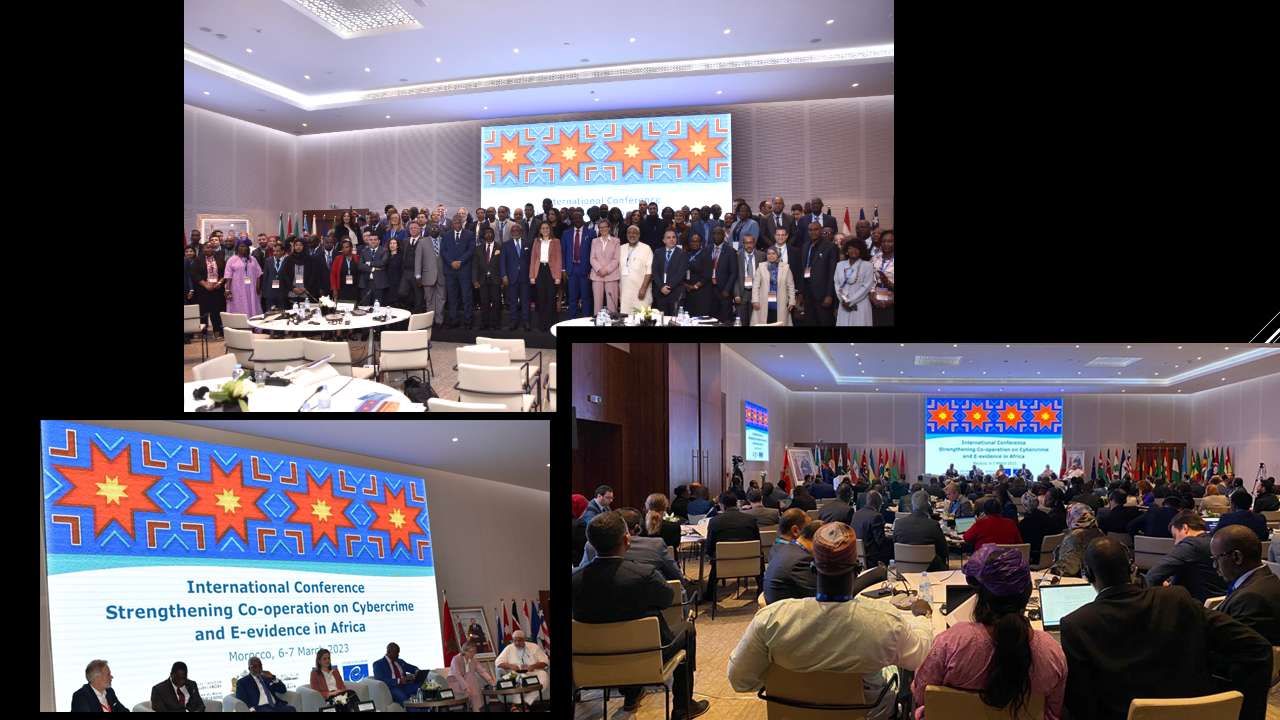More than 200 participants from 34 countries, including representatives of academia, private sector and international organisations attended the International Conference on cybercrime and e-evidence in Africa, held in Bouznika, Morocco, on 6 and 7 March 2023.
The event, jointly organised with the Ministry of Justice of Morocco and the Council of Europe, was opened by Ms. Ghita Mezzour the Minister of Digital Transition and Administrative Reform of Morocco, and ministers from Benin, Liberia and Sierra Leone, the Ambassador of European Union to Morocco and the Chair of the African Union Cybersecurity Expert Group.
Participants discussed emerging cybercrime threats and trends in Africa and ways to address them through capacity building activities and international co-operation.
“This event has strong participation of several African countries; this shows the efforts deployed by Morocco in the fight against cybercrime and the importance given to the exchange of good practices in this field”, the Minister Ghita Mezzour stated.
Alexander Seger, Head of the Cybercrime Division of the Council of Europe underlined that the Convention on Cybercrime (Budapest Convention) was opened for accession to all African countries and that some states had already made use of this opportunity: “Morocco is a Party, and so are Cabo Verde, Ghana, Mauritius, Nigeria and Senegal. Protocols to this Convention offer further tools. Morocco and Senegal had joined the Protocol on xenophobia and racism. And Morocco was the first African country to sign the Second Additional Protocol, in May last year. We hope that others will follow their example. We are ready to support countries committed to the Budapest Convention through capacity building activities.” He also thanked the European Union, the United Kingdom and the USA for their voluntary contributions that permitted the organisation of this conference.
The Chair of the African Union Cybersecurity Expert Group, Mr. Abdul-Hakeem Ajijola added: “One of the big questions we need to ask ourselves is who protects the digital African. And it is not just the intelligentsia or the youth that use the digital tools. The man in the street, the food vendor, the plumber, the mechanic, they are all using these digital tools and so we do need to ask ourselves this question – who will protect us, and I think the answer is we have to protect ourselves.” The African Union Convention on Cyber Security and Protection of Personal Data was also a very important topic of the discussions throughout the conference and calls for its ratification came from different participants.
The conference concluded with a “Bouznika Call to Action” encouraging African countries and all stakeholders to make use of existing treaties, such as the Budapest Convention, and adopt legislation on cybercrime and the protection of personal data, establish specialised units, develop national training strategies for criminal justice practitioners, identify priorities for capacity building, and support states and regional organisations in the implementation of relevant treaties.
CyberSouth project webpage
GLACY+ project webpage
Octopus project webpage
International Conference on cybercrime and e-evidence in Africa webpage
Deputy Secretary General of the Council of Europe intervention
Council of Europe: Convention on Cybercrime (Budapest Convention)



